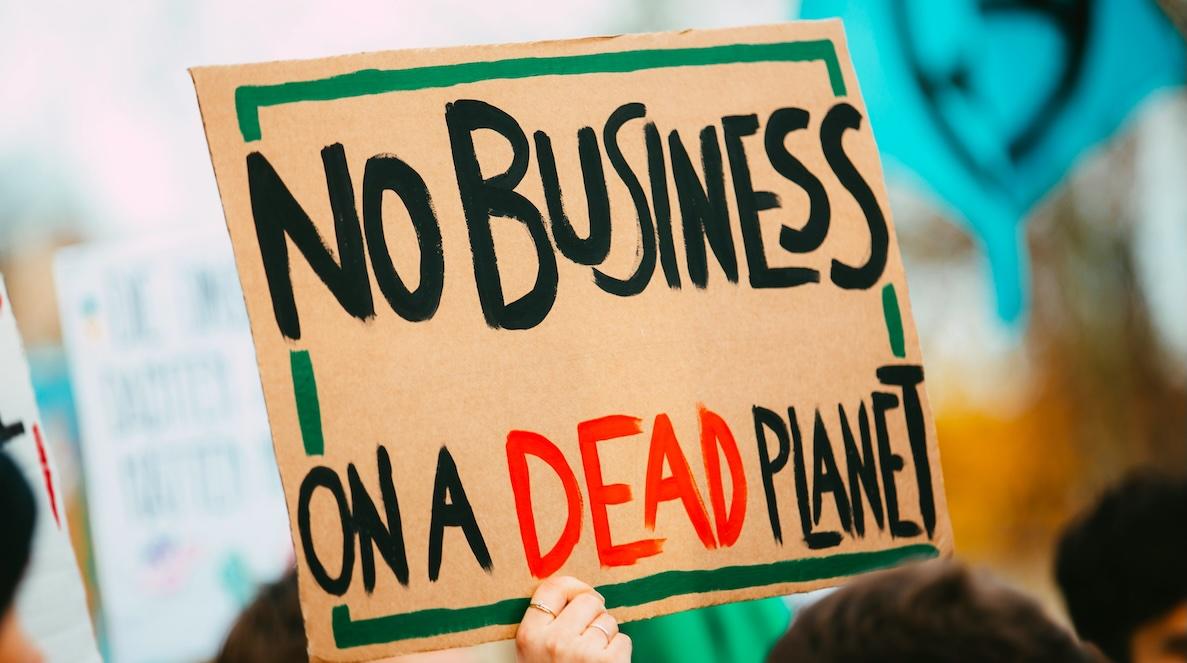Greenwashing Is Out of Style: How Companies Can Embrace Real Sustainability
Greenwashing is fading because it no longer works.
Published Oct. 3 2025, 5:12 p.m. ET

Sustainability is no longer a niche marketing angle or a shiny badge for companies to flash on their websites. It’s an expectation, and one that consumers, investors, and even employees are paying attention to with sharper eyes than ever before. That means greenwashing—the art of overpromising, exaggerating, or stretching the truth about eco-friendly efforts—is running out of runway. The good news is that there’s an enormous opportunity here.
Companies that ditch the optics and actually embed sustainability into how they operate are not just protecting their reputations but creating lasting value.
The Rise Of Accountability
The days when a recycled paper logo on packaging could win hearts are behind us. People are better informed, better connected, and far more skeptical than they were even five years ago. They want to know where materials come from, what carbon commitments look like in real numbers, and how a company treats both the environment and the communities around it. The simple question being asked is, is the company actually sustainable? That doesn’t mean perfect, because perfection doesn’t exist in global commerce. What it means is transparency, progress, and proof.

Accountability is being enforced not only by public opinion but also by regulators and watchdog groups. New policies in Europe and growing momentum in the United States are requiring companies to back up their sustainability claims with data. This creates a natural filter: those who can prove their impact will thrive, and those who can’t will face real consequences. Rather than seeing this as a burden, smart companies are using it as a chance to set themselves apart in a crowded market.
From Marketing To Culture
A common misstep is treating sustainability as a campaign instead of a cultural shift. You can’t silo it to one department or outsource it entirely to branding. For companies to genuinely shed greenwashing, sustainability has to flow through operations, supply chains, hiring practices, and even leadership decision-making. When it’s stitched into culture, it shows up everywhere, from how products are designed to how buildings are powered.
The companies making real progress aren’t the ones with the splashiest campaigns but the ones doing quieter, consistent work. A clothing company that redesigns its logistics to reduce emissions at every stage may not have the glitzy marketing headline, but over time that approach is far more meaningful—and far more sustainable in every sense of the word. Customers can tell the difference. Investors can too.
The Cost Myth
One of the reasons companies lean on greenwashing instead of meaningful change is the assumption that sustainability is too expensive. But that myth is starting to crumble. Yes, retrofitting buildings or shifting to renewable energy comes with upfront costs, but the long-term economics tell a different story. Energy-efficient operations cut expenses over time. Responsible sourcing reduces risk of supply chain disruptions. Lower waste means lower overhead.
Even from a pure branding perspective, the return is clear. Companies with strong, genuine sustainability practices enjoy more loyalty, more resilience during crises, and more ability to attract talent. Younger workers in particular want to be part of companies that align with their values, and sustainability is near the top of that list. The old belief that “green is costly” is being replaced by an understanding that “green is durable.”
The Role Of Outsourcing
Not every company has the internal expertise or resources to overhaul sustainability practices overnight. This is where partnerships can make an enormous difference. Working with specialized consultants, auditors, or even financial firms can help companies stay accountable without pretending to know it all in-house. For example, some firms are guiding organizations on how to measure carbon emissions properly, set realistic reduction targets, and report progress transparently.

When companies look to external experts, they often turn to financial and operational partners who can keep them honest. One way is through accounting support. Firms like TGG Accounting offer insights not just into financial operations but into how businesses can run more efficiently while aligning with sustainability goals. Businesses interested in transparency can learn more about outsourcing at TGG-Accounting.com, where the focus goes beyond balance sheets to helping leaders adopt measurable, responsible practices. This shift shows why outsourced accounting companies have become unexpected players in the fight against greenwashing: they bring objectivity, numbers, and the ability to show progress instead of polish.
Why Honesty Wins
Transparency doesn’t scare people away. It actually builds trust. If a company admits it’s only at the beginning of its sustainability journey but shares concrete steps it’s taking, that’s far more compelling than vague promises. Honesty allows room for progress. It also invites collaboration, since consumers, partners, and investors are often willing to support companies genuinely working toward improvement.
One of the clearest examples of this is in industries that have historically been high-impact, such as aviation or construction. These sectors don’t have the luxury of pretending they’re suddenly carbon neutral. Instead, the leaders acknowledge the challenges and then showcase what they’re doing—developing greener fuels, investing in new technology, or offsetting emissions transparently. That candor not only builds credibility but also pressures competitors to keep up.
Moving From Talk To Action
The movement away from greenwashing is about moving from optics to outcomes. That’s easier said than done, but it’s not impossible. Companies can start by narrowing their focus to a few high-impact areas rather than overpromising on everything. Setting measurable targets, publishing updates, and allowing for scrutiny all show a commitment to action. In many ways, the future of sustainability is about what companies choose not to say as much as what they do say. Empty promises are giving way to hard numbers and tangible results.

The beauty of this shift is that progress doesn’t need to be grandiose to be meaningful. Small, steady actions add up, and over time they paint a much stronger story than flashy claims ever could. Companies that stop worrying about the optics and focus on real change find themselves not only better for the planet but better prepared for the future of business.
A Stronger Future
Greenwashing is fading because it no longer works. People see through it, regulators penalize it, and companies that rely on it end up chasing their own tail. The businesses embracing true sustainability, on the other hand, are building stronger foundations—financially, operationally, and reputationally.
That’s the real takeaway: this isn’t about winning marketing points. It’s about aligning long-term business health with the health of the planet. Companies willing to be transparent, partner wisely, and embed sustainability into their culture will not only outlast those clinging to surface-level claims but also find themselves shaping industries in better ways. And in the end, that’s the kind of progress that everyone can get behind.
Ending greenwashing isn’t just a call to cut out half-truths. It’s a chance to build trust, to make smarter business choices, and to leave behind something more resilient than a marketing slogan. The companies willing to commit to this path will not only be remembered as sustainable but as leaders who chose substance over spin.